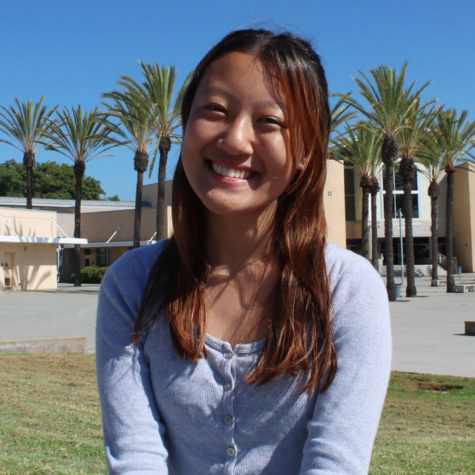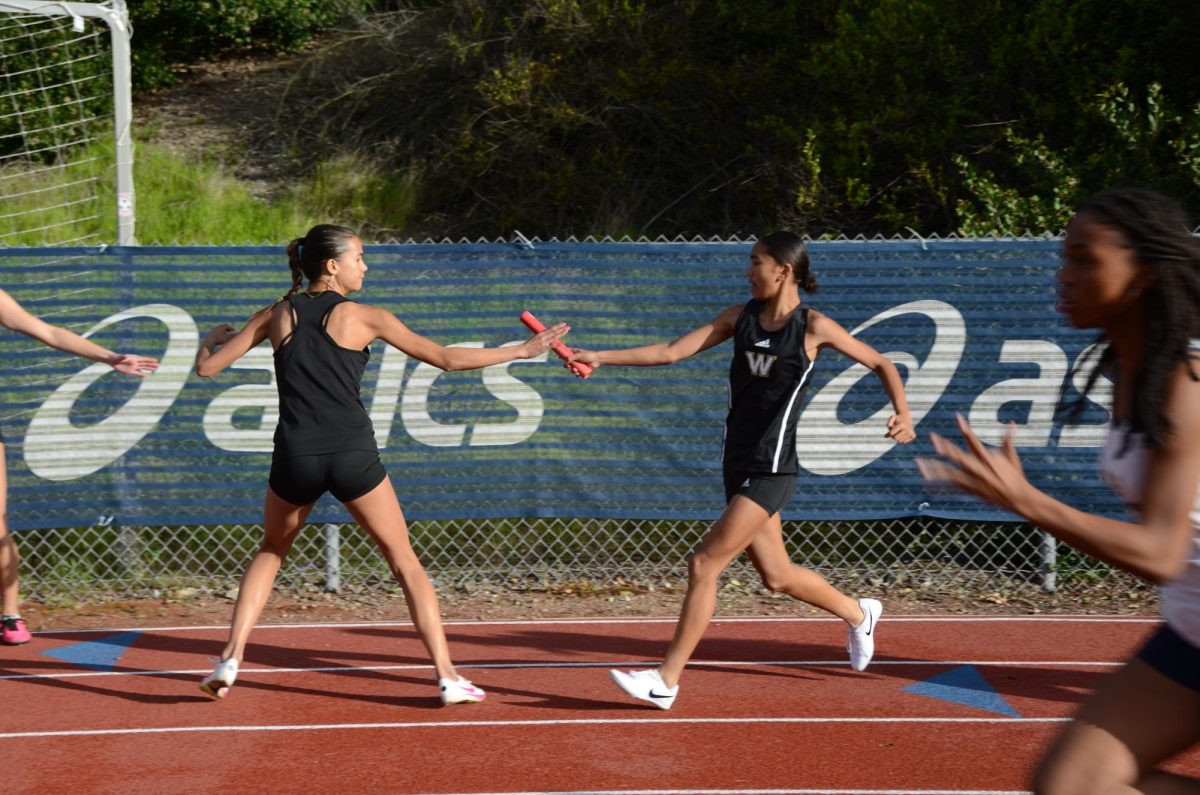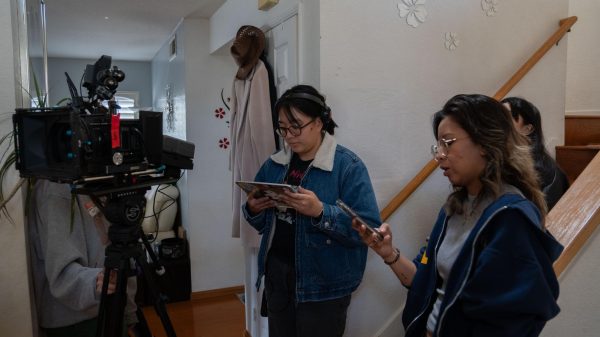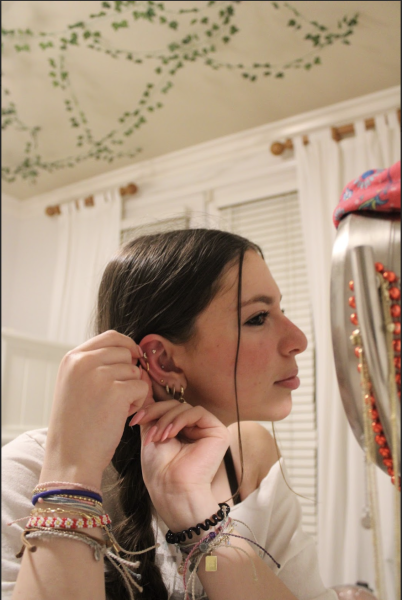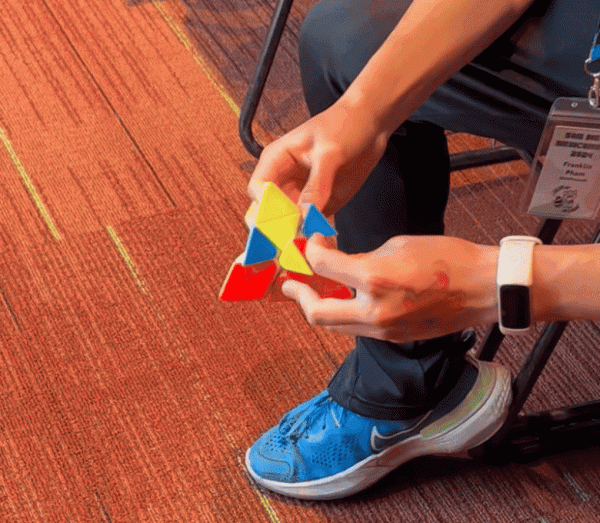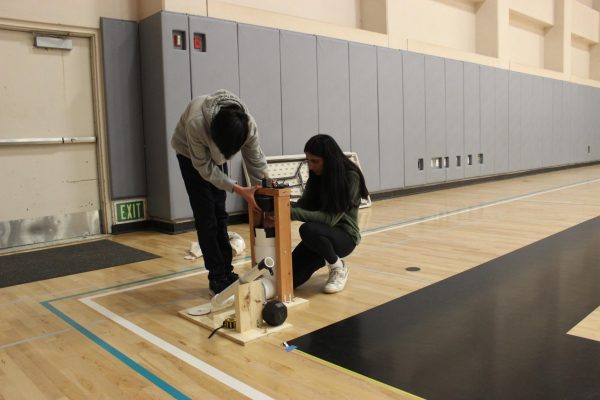Two Sides of the Same War
War in Ukraine touches lives of students with connections to both nations
April 8, 2022
In 2017, living in Moscow was bleak for Max Kharebava (12). He said the people around him didn’t smile, and each man had the same traditional, buzzed haircuts and the same, traditional jobs in manual labor. He lived in a small apartment with a living room and two bedrooms with his mom, dad, and younger brother.
“They’re really old, dusty, rusty, musty apartments,” Kharebava said. “They just [don’t] look nice. Russia has nice buildings in city centers but then all the other buildings in the background, the really old, dirty ones; you just see faults [in Russia].”
When Kharebava’s dad was 16 years old, he moved from the country of Georgia to Russia, where he met Kharebava’s mom. Kharebava, his older brother, and younger brother were born in Russia.
When Kharebava was 5 years old, his family moved to San Diego and he attended Willow Grove Elementary School and Design 39, but his family was constantly moving houses. His dad, a lawyer in Moscow, had trouble finding a job in America because of his limited English.
In the eighth grade, Kharebava moved to Moscow with his family so his father could find a job, and Kharebava quickly decided he wanted to leave. He spoke Russian poorly and even had trouble connecting with close relatives like his uncle and grandmother.
“I went to a Russian school,” Kharebava said. “I got really bad grades there because I didn’t speak Russian that well. The only good grades that I got were in English class.”
He was unhappy in Russia, and only found moments of joy with his good friends, Yura and Max. The trio founded a band and he laughs when he remembers singing “Pretty Woman” to several different classrooms on Women’s Day in Russia. However, he couldn’t escape the language barrier and creeping feelings of depression.
“I just didn’t like the same things I used to,” Kharebava said. “I started just laying around a lot more. I didn’t have any motivation to do anything. I didn’t want to ever go out.”
So he began begging his dad to move back to San Diego and would constantly ask “when can I go back?”
Finally, his father relented. Kharebava’s older brother was already living with his best friend since elementary school, Jake Schwartz, so Kharebava joined him and attended Westview his freshman year. When his parents came back from Russia to San Diego, he then moved to Del Norte and traveled with them to Georgia, the country, last year.
During his senior year, he settled, again, at Westview, living with the Schwartz family.
“I really like it [in San Diego], and I think about my friends,” he said. “I think about all the things that I know about San Diego and things that I do here and I’ll just miss it. I don’t want to go back [to Russia] because whenever I go there, it always feels like I might for some reason get stuck there.”
Kharebava has always feared being drafted into the military now that he’s 18 years old if he were to go back to Russia, trapping him.
Currently, despite no severe attacks on Russia from Ukraine, the economic sanctions placed on Russia as a result of the war began to affect everyday citizens, including Kharebava’s mom, dad, and little brother. The imported products they used to purchase and use on a daily basis were out of stock, and the prices of local items were heavily inflated due to high demand.
As a result, Kharebava’s family decided to leave Russia. They had to sell everything they had—anything expensive or that was too large to carry. His family packed up everything else and moved to Georgia by car, March 21.
Even though the borders were open between Russia and Georgia, it took 12 hours just to cross the border due to the long lines of cars trying to leave Russia.
“I think the war is just pointless and both Russians and Ukrainians, know that it’s just [the Russian] government [that’s responsible],” he said. “I think they know that a Russian guy doesn’t hate a Ukrainian guy…it’s all just politics.”
All Kharebava can do is apologize to those in Ukraine, for the immorality of his government.
“I’d say sorry,” Kharebava said. “‘I’m sorry my government is acting like that, but I still love you, bro.”
Despite the turmoil in his home country, he hopes to look toward the future. It’s been difficult to create roots due to his family’s housing instability, but he’s always managed to find home again.
“I think it’s because I keep leaving San Diego that I’ve been drawn back to it because there are people who grow up here and they want to leave because they spent their whole lives here,” Kharebava said. “But I keep getting taken away from here, which makes me want to be here [even] more.”
On March 24 at 11:30 p.m., Anna Yekhilevsky (11) heard her mom calling her mom’s high school friend, who lived in Ukraine, about the bombings in Kyiv. Its aftershock shook their windows and they suffered sleepless nights from Russian troops camped in forests outside their homes. Yekhilevsky began to hear sirens blaring from her mom’s phone, and her mom said goodbye before her mom’s friend had to go back to their bomb shelter.
Growing up, Yekhilevsky heard stories about her mom’s childhood as a Ukrainian dancer who traveled the world with her community of friends and parents. When her mom danced, she wore a poofy white blouse under a flower-embroidered red vest and skirt with a woven headband of vibrant ribbons and flowers.
Yekhilevsky said that Ukraine was bursting with color, from people’s clothing to buildings.
“She showed me pictures of how [her school] was—it was a gorgeous sight,” she said. “It’s nothing that compares to Westview, for example—[the sheer] enormity of it—but it kind of looks like an office building on the outside but inside there were murals and gorgeous paintings and colorful classrooms. A lot of their life was colorful and filled with all of the Ukrainian traditions and lifestyles.”
Even though she grew up here, Yekhilevsky had always felt deeply immersed in her culture from the food to the language. Even in her gymnastics routines, she’d dance to traditional Russian or Ukrainian music.
Her mother was born in Russia and grew up in Ukraine and her father was born in Kyiv. Due to the Soviet Union’s prominence during her parents’ childhoods, learning Russian was more common than Ukrainian, so they taught Yekhilevsky Russian instead.
The Ukrainian and Russian cultures are almost indistinguishable in Yekhilevsky’s household. Similarly, the two cultures are intertwined.
“The Russian [and] Ukrainian languages are extremely similar,” she said. “In a loose comparison, [with] Spanish and Portuguese, if someone’s talking to you in Ukrainian and you only know Russian, you can clearly understand what they’re saying. A lot of the words are very similar. There are some unique words but you can always understand the gist of what they’re saying.”
Because of these similarities, it’s hard for Yekhilevsky to understand the purpose of a war where she believes Russia targets its own people.
“It’s just ridiculous the way that Putin has changed the minds of the Russians to be able to hate and attack their own people,” she said. “A lot of Russians also have their grandparents or parents living in Ukraine and still continue to spread hatred [and] hate the Ukrainians, even though they’re connected.”
Despite her disbelief, the consequences of the war, and the destruction it has left behind, have visible impacts.
“Immediately, when she told me [her school was destroyed], I just pictured how it would look if Westview was just gone and obliterated into pieces and all of the houses were just gone,” Yekhilevsky said. “This was just an eye-opening experience of how lucky we are to live here and confident that we’re safe and not have to constantly live in fear for years and years of when there’s going to be bombers that are going to come in and destroy everything we’ve established, which is how Ukrainians have been living for many, many years.”
Due to the war, the vibrant murals that once lined Yekhilevsky’s mother’s school are only debris.
“I was going to go to [Zhytomyr, Ukraine] during the summer after my senior year,” Yekhilevsky said. “[It’s] my mom’s hometown where she grew up, which was a beautiful, colorful city. She grew up there, her [childhood] school’s there. Everything’s there. And unfortunately, the entire town was blown up. There’s nothing left, so my mom’s whole childhood is just gone. She only has memories to hold onto.”


